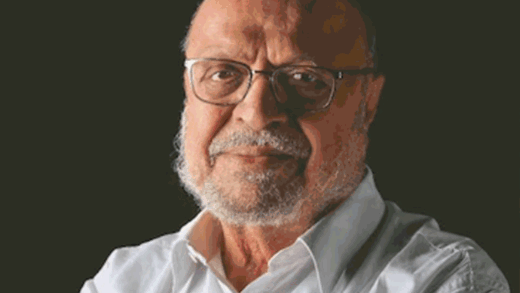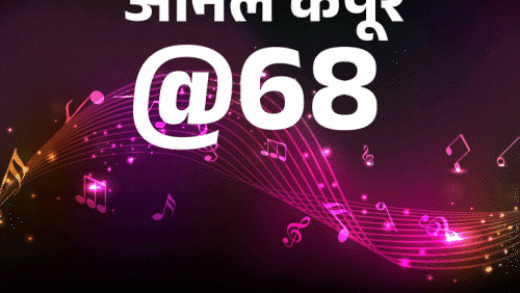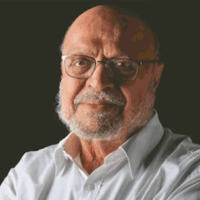President Joe Biden signed a bill on Wednesday that could ban TikTok — for real this time. After so many false starts and stops, some creator economy founders and their clients are rolling their eyes. They’ve been through this before.
“I think two years ago, this would have been devastating,” Karat Financial co-founder and co-CEO Eric Wei told TechCrunch. “Now … eh.”
When creators succeed, the startups that work in the creator economy generally succeed as well. Still, Wei isn’t particularly concerned that the friction from a TikTok ban would impact his business, a Series B startup that provides financial services to creators.
“If you build products in startups that help creators make money, then actually, from an addressable market point of view, this is good for you,” Wei said. “Your framing can be like, ‘TikTok is gone; as a creator, you need to be thinking about diversifying and how to support yourself, so here’s XYZ things you can do.’”
The threat of the TikTok ban feels a bit like “The Boy Who Cried Wolf,” even though this time, it’s different. This isn’t just political theater in the form of ongoing Senate hearings. This bill, which would force ByteDance to sell TikTok if it can’t find an American buyer within nine months, made its way through the House and the Senate to Biden’s desk, where he signed it into law.
But the creator landscape looks different now than it did in 2020, when former president Donald Trump tried banning the Chinese-owned app (and, as he runs for president again, he now says he’s opposed to the ban, because it would give Meta too much power). Established creators have had about three years of legal back-and-forth and two different presidencies to prepare their businesses for a world without TikTok.
As Wei scrolls through a large group chat he’s in with other creators, he notes that no one’s too panicked.
“I’m looking through, and there’s some jokes — one guy jokes, ‘My Snapchat shares are about to pop,’ and another said, ‘Let’s make a skit: when TikTokers protest the TikTok ban — who’s in?’” he said. “A third says, ‘TikTok’s about to sue. I’ve been talking with their internals,’ and a fourth one replied, ‘Where’s my popcorn?’”
This isn’t the case for all kinds of creators. Wei notes that TikTok livestreamers and creators who monetize via TikTok Shop could be hit the hardest, since platforms like YouTube Shorts and Instagram Reels aren’t as invested in those features as TikTok. The ban could also be detrimental to politically oriented creators, since Instagram Reels isn’t a viable alternative for them — the Meta-owned platform has begun limiting the reach of political content. And while the more established creators in Wei’s group chat have been preparing for this for years, the transition away from TikTok could be a huge gut-punch to newer creators who don’t have followings on multiple platforms yet.
“To be clear, no one’s like, ‘This is good for us!’” Wei said. But the amount of time creators have had to prepare for this moment has made them better poised to weather the storm.
“This is something that’s been talked about for a very long time, so creators are aware — this is not new,” Harry Gestetner, co-founder and CEO of creator monetization platform Fanfix, told TechCrunch. “The second thing is, this is not an overnight ban. Creators still have about a year to transfer their following, so I am optimistic.”
James Jones — the CEO of Bump, another financial services company for creators — is looking at the situation in parallel.
“There will undoubtedly be a ripple effect amongst the creator community as a result of the TikTok ban,” Jones told TechCrunch. “But creators are getting better at diversifying the ways that they monetize across multiple platforms. We’ve also seen this movie before in the case of Vine, which paved the way for TikTok to fill the void that it left.”
TikTok’s secret sauce is its power to help creators get discovered — more so than other platforms, anyone can blow up on the For You page. But while Instagram Reels and YouTube Shorts could have been likened to “Kirkland brand TikTok” in 2021, the platforms have since matured.
In TikTok’s initial Creator Fund, a static pool of money distributed among a growing number of eligible creators, few people were supporting themselves on TikTok views alone. This has only recently changed as TikTok transitioned creators into its Creativity Program, which offers a better deal to eligible creators — but not all creators are making videos that fit the bill for that program. So, to make content creation a stable career, they’d have to transition onto other platforms anyway. YouTube Shorts has started sharing ad revenue on short-form videos, similar to its long-standing Partner Program, while Instagram Reels only has occasional, unreliable bonus programs.
Gestetner told TechCrunch that some creators he works with have been disillusioned by TikTok anyway.
“The problems with TikTok go past just the ban,” he said. “Creators so often get their accounts removed on TikTok, or get shadow banned, or get reported, and it’s very difficult to get an answer from TikTok. So we’ve dealt with problems there for years now.”
It’s not as though other platforms don’t share these transparency issues. But these risks have made it essential for creators to not put all their energy into one platform.
“Five years ago, creators were generally on one platform,” he said. “Now, every creator has a minimum of three, and up to five, six or seven platforms they use.”
This necessity of diversification extends beyond just the platforms creators use. Creators also need to generate income from a variety of sources, whether that be through fan memberships, product sales, live performances or courses.
“I think on our business, there will be no impact, or potentially kind of a positive impact,” Gestetner said. “It helps our case, because creators are all skeptical of the big platforms, and they don’t want all of their monetization to be tied to a particular platform.”
In theory, the ban on TikTok could create room in the market for another short-form video app — perhaps one that is not owned by a massive corporation like Meta or Google. But this likely won’t pose another situation like what happened when Elon Musk bought Twitter, and several microblogging apps cropped up seemingly overnight.
“I think a really good example of this is like, remember Triller?” Wei said. “For a while, we were all excited about it, like ‘Oh my god, TikTok’s going away, let’s put money toward Triller!’ But then everyone realized TikTok is not going away. And now it’s years later, and does anyone talk about Triller anymore?”
Well, they might not be talking about Triller either because the company is a walking red flag. In any case, creators won’t have the patience to invest in a nascent platform that might not last, so they’ll have to make due with Instagram, YouTube and Snapchat. That doesn’t mean TikTok won’t be missed, though.
“I think the fans will be affected the most overall,” Gestetner said. “But I do think the Shorts experience and Reels experience is getting very good.”
#TikTok #ban #impact #creator #economy #startups #founders #TechCrunch
Source link


















